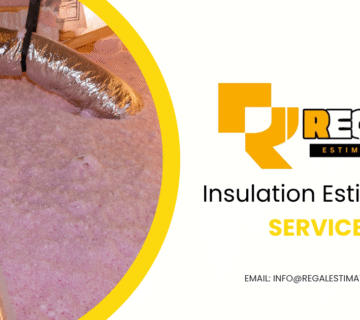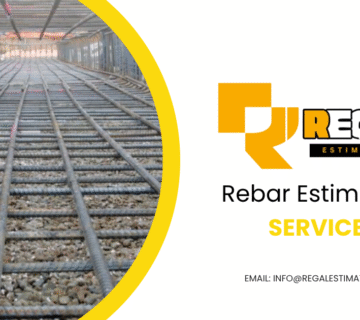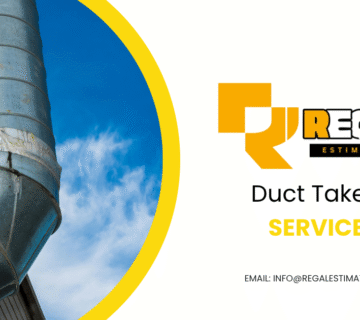Introduction to Metals Estimating Services
Metals Estimating Services play a vital role in the construction, manufacturing, and infrastructure sectors. With metals like steel, aluminum, and copper at the core of structural and architectural designs, it’s no surprise that accurate cost estimation is crucial. Whether you’re dealing with a skyscraper’s frame or intricate piping systems, understanding how much metal you need—and at what cost—makes or breaks a project’s success.
Why Are Metals Estimating Services Crucial in Modern Construction?
The complexity of modern builds, rising material costs, and increasingly tight deadlines mean precise budgeting is a must. Metals estimating services help contractors and engineers:
- Determine accurate quantities of various metals
- Predict labor and fabrication costs
- Account for transportation and installation logistics
The Rise of Metal-Based Construction Projects
Metals have become the backbone of contemporary construction due to their strength, durability, and flexibility. From high-rise buildings to bridges, the use of structural steel and metal cladding is soaring.
Cost Control with Metals Estimating
One small miscalculation in material quantity can lead to thousands of dollars in overruns. Expert estimators use powerful software to ensure tight cost control, leading to more profitable projects and competitive bids.
Metals Estimating Services – Regal Estimating
- Comprehensive Estimating for structural steel, rebar, metal decking, joists, and miscellaneous metals.
- Accurate Quantity Takeoffs based on your project drawings and specifications.
- Serving Contractors, Fabricators, and Builders across residential, commercial, and industrial projects.
- Software Expertise using Bluebeam, PlanSwift, and other industry tools for precision and speed.
- Detailed and Itemized Reports that make bidding and planning easier.
- Cost-Effective Solutions that help you stay on budget and competitive.
- Quick Turnaround Times to meet tight bid deadlines.
- Experienced Estimators with deep knowledge of metals and construction standards.
- Client-Focused Approach with customized quotes and responsive communication.
- Sample Estimates Available upon request to show our work quality.
American Institute of Steel Construction (AISC)
Learn about structural steel standards and design guides.
👉 https://www.aisc.org
Key Components of Metals Estimating Services
Metals Estimating Services involves much more than counting steel beams. Here are its core components:
Material Takeoff (MTO)
An MTO lists every piece of metal required—from I-beams and sheets to fasteners and plates. It’s the foundation of the cost estimate.
Labor and Equipment Costs
Skilled labor and heavy machinery are needed to cut, weld, and install metal. Estimators factor in hours, labor rates, and machine usage.
Waste Factor and Overages
Material waste is inevitable. A good estimator accounts for offcuts, damage, and mistakes, typically adding 5–10% to the material estimate.
Tools and Software Used in Metals Estimating Services
Today’s estimators lean heavily on digital tools to streamline takeoffs and estimates.
Bluebeam Revu, PlanSwift & Trimble MEP
These platforms allow professionals to perform digital takeoffs, link to supplier databases, and generate real-time pricing.
BIM Integration and CAD Tools
Building Information Modeling (BIM) tools and CAD software let estimators pull exact measurements from 3D models, improving accuracy and collaboration.
Top 10 Benefits of Hiring Professional Metals Estimating Services
Here’s why investing in professional metals estimating services is a game changer:
1. Accuracy and Efficiency
Seasoned estimators use both experience and tech to deliver fast, accurate numbers.
2. Reduced Risk of Budget Overruns
With precise forecasts, there’s less chance of surprises during procurement or construction.
3. Better Project Planning
Accurate estimates allow for proper scheduling and logistics, minimizing downtime.
4. Improved Bid Competitiveness
Winning bids often come down to the penny. A precise estimate makes your offer stronger.
5. Flexibility for Design Changes
Expert estimators quickly revise costs as design modifications arise.
6. Industry-Specific Knowledge
They understand nuances across commercial, industrial, and infrastructure projects.
7. Increased Profit Margins
Avoiding over-ordering and reducing waste saves serious money.
8. Resource Optimization
You can better allocate manpower and machinery with detailed projections.
9. Transparent Documentation
Professional reports help clients and stakeholders understand the budget.
10. Enhanced Decision Making
Informed decisions stem from clear, detailed, and realistic cost estimates.
Industries That Rely on Metals Estimating Services
Professional metals estimating is used across various sectors:
Commercial
Includes office buildings, malls, and data centers where structural steel is common.
Industrial
Plants, warehouses, and production facilities often involve custom metal fabrication.
Infrastructure Projects
Bridges, airports, and rail systems depend on high-grade metals and precise estimates.
In-House vs Outsourced Metals Estimating
In-house estimating gives you more control but can be costly due to hiring, training, and software needs.
Outsourcing, on the other hand, is cost-effective and gives you access to top-tier experts and tools.
Common Challenges in Metals Estimating Services and How to Solve Them
- Changing Prices: Metal prices fluctuate daily. Use live-pricing software.
- Incomplete Drawings: Collaborate closely with architects and engineers.
- Time Constraints: Leverage digital tools to speed up estimates.
- Human Error: Cross-check estimates using automated validation tools.
Tips to Choose the Right Metals Estimating Services
- Look for E-E-A-T: Experience, Expertise, Authoritativeness, Trustworthiness
- Review portfolios and case studies
- Ask about turnaround times and software proficiency
- Ensure they are familiar with your industry type and project scope
FAQs About Metals Estimating Services
Q1. What is a metals estimator’s role in a construction project?
A metals estimator calculates the types and quantities of metal required, estimates labor, and provides cost projections for procurement and installation.
Q2. How much do metals estimating services cost?
Costs vary depending on project complexity. However, they often range from $300 to $1,500 per estimate.
Q3. Can I use free software for metals estimating?
Free tools exist but are limited in accuracy and features. Professional estimators use robust software like Bluebeam or PlanSwift.
Q4. What types of projects benefit most from metals estimating?
Large-scale commercial, industrial, and infrastructure projects benefit the most due to their complexity and metal usage.
Q5. Can metals estimating services help with LEED or green building compliance?
Yes, estimators can calculate sustainable material use and waste reduction for certification.
Conclusion
Metals Estimating Services are the backbone of modern construction planning. They help you avoid costly surprises, streamline logistics, and win more bids. Whether you’re a contractor, builder, or architect, investing in accurate and professional estimating is one of the smartest moves you can make.





No comment